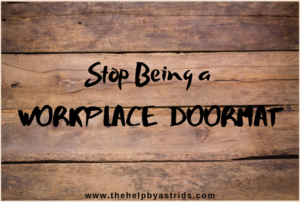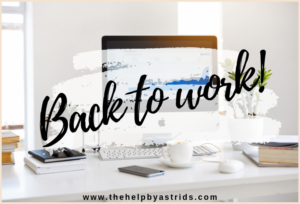
Most of today’s companies offer their employees the ability to telecommute or work from home for a few days a week. This has been a recent trend in multinational companies and is offered as one of the perks depending on your position in the company. Companies like Oracle, Deloitte, IBM, CBS Interactive, and Viacom are some of the companies that have flexible work from home policies.
This is why more and more people are carving out spaces in their homes to serve as their mini home offices. It’s no fun and it’s not very professional to work off of the dining table or on a laptop on your bed. So a lot of work from home professionals have opted to create a dedicated space at home for a mini office.
You don’t have to completely renovate your house to include a home office. You don’t even have to add another room. You can work with what you have to create a great space for working from home without having to spend a lot of money. Here are a few tips on how to set up a home office without breaking the bank.
Look for unused space
Do you have a guest room? Is there a walk-in closet roomy enough to fit a chair? Is the space underneath the stairs usable? What about the huge landing between the first and second floor, can you use that?
Not everyone is lucky enough to have a spare room so we have to use our creativity and look for areas in the house where we can fit a desk and an office chair in. It has to be a dedicated workspace though. It’s hard to concentrate on work when you work off the kitchen table and the kids are eating. Carve out space where you don’t have to move your stuff for around, like when baby needs a diaper change and you have to use the same table you work on.
Minimalist requirements
Think about what you need. Do you need a desk? How about a chair? Does it have to be big and bulky? Will a simple chair do or do you need an ergonomic chair? Do you need file cabinets or display cabinets?
Pare down your requirements to just the basics so that you can fit them into the spaces in your home. For example, my setup is just a simple desk with a 2 layer side shelf and an ergonomic chair that isn’t very big and imposing. It is in a small quiet corner of the living room, next to the sliding doors that lead to the garden. It’s a small space that has natural lighting and a great view of plants and pets.
Be a DIY fan
You don’t have to hire a contractor for things you can do yourself. If you want to have an accent wall for a beautiful background during video conference calls you can probably get away with painting the wall yourself. You can also hang a pretty framed photo or some artworks in the background. You can even put decals or wallpaper to define the space as a workspace.
You can also build your own desk. Take 3 side cabinets of the same height and connect them by putting a board across. Be sure to measure your space first so that you know that the desk will fit. You can paint or stain them to be a uniform color and look like 1 desk instead of 3 different furniture pieces.
What about you? What are your DIY home office tips? Share them with us in the comments Stay humble and hustle hard!
Written by Jaie O. The Help



